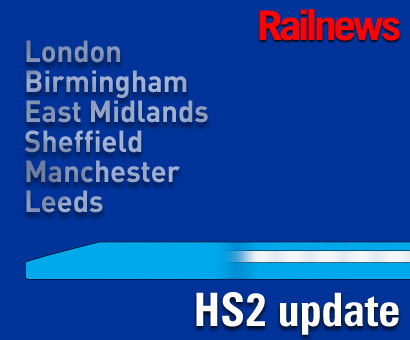A HOUSE of Lords Committee has concluded that the Government has 'yet to make a convincing case' for investing £50 billion in HS2. But the DfT said the case for building the line remains 'crystal clear'.
The figure of £50 billion includes rolling stock and large contingency margins, but the report suggests that the 'huge' public subsidy to HS2, an estimated net £31.5 billion, conflicts with the Government's declared objective of making rail less dependent on public subsidy.
The Committee argues that such large expenditure should be considered against the background of financial restraint. It queries whether the users of the proposed line, mainly business travellers, should carry more of the cost than is currently proposed.
The Government has set two main objectives for HS2: increasing capacity on the railway and rebalancing the economy. but the report claims that it fails to make a convincing case for either.
It continues: "On capacity, full information on railway usage has not been made publicly available by the Government, on the grounds of commercial sensitivity.
"The evidence shows that long distance trains arriving at and departing from Euston are, on average, just 43 per cent full and even during peak times are only between 50 and 60 per cent full. Overcrowding is largely a problem confined to Friday evenings and weekends on long-distance trains and to London-bound commuter trains.
"There are less expensive options to remedy these problems than HS2 but these have not been properly reviewed."
The Committee agrees with the objective to rebalance the economy but disputes the claim that HS2 is the way to achieve it. The evidence from other countries, such as France, shows that the capital city is the biggest beneficiary from high speed rail. As a result, the Committee argues there is a 'strong case' for improving the transPennine links or building the northern legs of HS2 first, both of which could be a better way of rebalancing the economy than building the southern leg of HS2.
It also suggests that money could be saved by building the line for a maximum speed of 320km/h, rather than the proposed 400km/h.
The report points out that the cost-benefit analysis for HS2 relies on out-of-date evidence, some dating back to 1994.
It says the Department of Transport admits that fresh evidence is required and the Committee believes this should be provided before Parliament passes the HS2 enabling legislation. The Government's claim that the cost-benefit analysis placed HS2 in the high value-for-money category was disputed by a number of witnesses, who assessed it as being in the bottom 10 per cent of projects.
Lord Hollick, who chairs the House of Lords Economic Affairs Committee, said: “At £50 billion HS2 will be one of the most expensive infrastructure projects ever undertaken in the UK but the Government have not yet made a convincing case for why it is necessary.
“Overcrowding on the West Coast Main Line is largely a problem on commuter trains and on long-distance trains immediately after peak time on Friday evenings and at some weekends. The Government have not carried out a proper assessment of whether alternative ways of increasing capacity are more cost effective than HS2."
“We have set out a number of important questions on HS2 that the Government must now provide detailed answers to. Parliament should not approve the enabling legislation that will allow HS2 work to begin until we have satisfactory answers to these key questions.”
In response, the DfT said the new lines would be 'transformational'. A spokesman added: "It is a vital part of the government's long-term economic plan, strongly supported by Northern and Midland cities, alongside our plans for better east-west rail links confirmed in the Northern Transport Strategy last week.
"Demand for long distance rail travel has doubled in the past 15 years. It is crucial we press ahead with delivering HS2 on time and budget and we remain on track to start construction in 2017."
Labour also supports the project in principle, although it has warned that there will be 'no blank cheques'. The Green Party and UKIP both oppose the plan.


